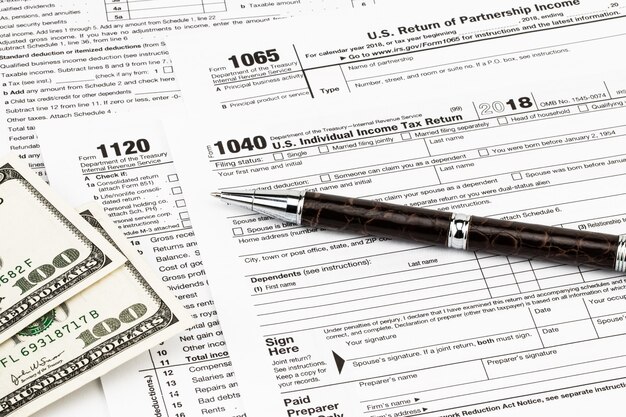Your Guide to Who Is Exempt From Social Security And Medicare Withholding
What You Get:
Free Guide
Free, helpful information about Medicare FAQ and related Who Is Exempt From Social Security And Medicare Withholding topics.
Helpful Information
Get clear and easy-to-understand details about Who Is Exempt From Social Security And Medicare Withholding topics and resources.
Personalized Offers
Answer a few optional questions to receive offers or information related to Medicare FAQ. The survey is optional and not required to access your free guide.
Are You Exempt from Social Security and Medicare Withholding? Here's What You Need to Know
Navigating the intricacies of payroll taxes can be a daunting task, especially when trying to understand who is exempt from Social Security and Medicare withholding. These taxes, mandated under the Federal Insurance Contributions Act (FICA), support vital programs that provide benefits for retirees, disabled individuals, and those with Medicare eligibility. While most employees see these withholdings from their paychecks, certain categories of workers are exempt. Knowing if you fall into these categories can save you both time and money.
Who is Typically Exempt?
1. Certain Religious Groups: Members of specific religious groups that conscientiously object to public insurance may qualify for exemption. These include certain Amish and Mennonite communities and other religious orders that take a vow of poverty.
2. Non-Resident Aliens: Some non-resident aliens, including certain international students, researchers, or teachers temporarily in the U.S. under specific visa categories (like F, J, M, or Q visas), may qualify for exemption from FICA taxes. However, this exemption is dependent on specific conditions including the duration of their stay.
3. Students with On-Campus Jobs: Students who work at the educational institution where they are enrolled and regularly attending classes might be exempt. This allows students to work without the burden of FICA taxes impacting their financial aid packages.
4. Certain Foreign Government Workers: Employees of foreign governments, under strict conditions, may also fall under exemptions if they perform official duties.
Why These Exemptions Matter
Understanding these exemptions can help with financial planning, especially for those balancing work, studies, or religious commitments. Avoiding unnecessary withholding can help increase immediate take-home pay, which can be crucial for those living on a tight budget.
Knowing your exemption status is also crucial for employers to ensure compliance and proper reporting. Incorrectly withheld taxes can cause complications during the reconciliation or refund process, costing both time and resources.
Exploring Financial Tools and Resources
Whether exempt or not, it's critical for everyone to be informed about various financial assistance programs available, which can be a lifesaver in certain situations. Here are some tailored solutions and resources that might interest exempt individuals and those looking to bolster their financial security:
Financial Assistance Programs 💸
- Government Aid Programs: Explore options like Supplemental Security Income (SSI) for those with limited income and resources, which can be beneficial even if you're not contributing to Social Security directly.
- Educational Grants: For students, investigating federal and state grant opportunities can alleviate tuition costs without the need for repayment.
- Debt Relief Options: Look into reputable debt relief organizations that may help consolidate or reduce debts for those struggling financially.
Credit Solutions 💳
- Credit Counseling Services: Free or low-cost services to help manage your finances and reduce debt.
- Credit Builder Loans: Small loans designed to boost credit scores while saving money – a win-win.
Educational Opportunities 🎓
- Community College Programs: Affordable courses and certification programs can boost skills without breaking the bank.
- Online Learning Platforms: Platforms offering free or discounted courses to advance career prospects and enhance resumes.
Understanding your tax obligations and exemptions is pivotal, not only for effective financial planning but also for ensuring you don't overpay. Meanwhile, various financial assistance programs and resources are there to aid in balancing life's demands, shielding you from potential financial pitfalls. Whether you're a student trying to make ends meet, a member of a religious community, or a foreign worker, staying informed is your first step toward financial freedom.
What You Get:
Free Medicare FAQ Guide
Free, helpful information about Who Is Exempt From Social Security And Medicare Withholding and related resources.

Helpful Information
Get clear, easy-to-understand details about Who Is Exempt From Social Security And Medicare Withholding topics.

Optional Personalized Offers
Answer a few optional questions to see offers or information related to Medicare FAQ. Participation is not required to get your free guide.


Discover More
- a Medical Provider That Accepts Medicare Assignment Must
- a Medical Provider That Accepts Medicare Assignment Must Quizlet
- a Medicare Patient Received Treatment That Isn't Covered By Medicare
- a Medicare Patient Receives Treatment That Isn't Covered By Medicare
- a Medicare Supplement Basic Benefit Is Quizlet
- a Medicare Supplement Companies
- a Medicare Supplement Policy Is Quizlet
- a Medicare Supplement Policy Must Not Contain Benefits Which
- a Patient Received Treatment In August Medicare
- Am I Eligible For Medicare
